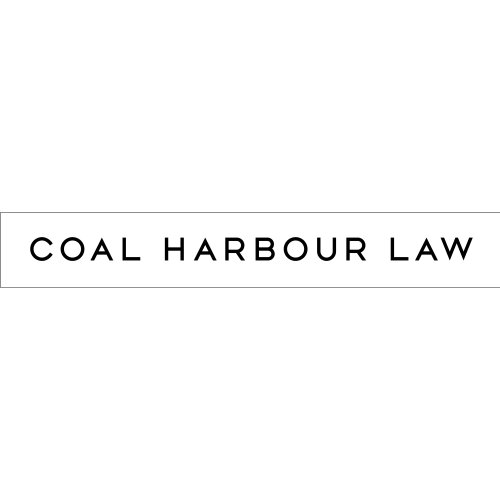Best Financial Services Regulation Lawyers in Vancouver
Share your needs with us, get contacted by law firms.
Free. Takes 2 min.
List of the best lawyers in Vancouver, Canada
About Financial Services Regulation Law in Vancouver, Canada
Financial Services Regulation in Vancouver, Canada, is part of a broader national framework that governs financial institutions, including banks, insurance companies, investment firms, and credit unions. This regulation ensures that these entities operate safely and soundly while maintaining the integrity and stability of the financial system. The regulatory system in Vancouver is primarily overseen by federal bodies, such as the Office of the Superintendent of Financial Institutions (OSFI), the Financial Consumer Agency of Canada (FCAC), and provincial regulatory authorities like the British Columbia Securities Commission (BCSC). These bodies create and enforce regulations to protect consumers by ensuring transparency, fairness, and accountability within the financial services industry.
Why You May Need a Lawyer
There are various scenarios in which individuals or businesses may require legal assistance in the realm of Financial Services Regulation in Vancouver:
- Compliance Issues: Firms must constantly adhere to evolving regulations. A lawyer can help navigate complex compliance requirements and avoid penalties.
- Dispute Resolution: Disputes can arise between financial institutions and their clients. Legal assistance can help mediate or litigate these issues.
- Regulatory Investigations: If a financial regulator initiates an investigation against a firm, legal counsel is crucial to protect interests and ensure proper conduct.
- Contractual Agreements: Financial services often involve intricate agreements. Lawyers can help draft, review, and negotiate contracts to safeguard your interests.
- Mergers and Acquisitions: Legal advice is often needed during mergers or acquisitions to ensure compliance with financial regulations.
Local Laws Overview
Vancouver, like the rest of British Columbia, follows both provincial and federal regulations in financial services. Key aspects include:
- British Columbia Securities Act: Governs the offering and sale of securities, aiming to protect investors.
- Consumer Protection Act: Protects consumers entering into credit agreements in British Columbia.
- Federal Regulations: Including the Bank Act, Insurance Companies Act, and the Trust and Loan Companies Act, supervising financial entities and their operations.
- British Columbia Financial Institutions Act: Addresses the licensing and operation of credit unions and similar institutions.
Frequently Asked Questions
What is financial services regulation?
Financial services regulation involves the oversight and setting of standards for financial institutions to ensure they operate in a safe, sound, and responsible manner.
Who regulates financial institutions in Vancouver?
Financial institutions in Vancouver are primarily regulated by federal entities like OSFI and FCAC, as well as the provincial BCSC for securities-related activities.
How can a lawyer help me with compliance issues?
A lawyer can assist in understanding regulatory requirements, developing compliance programs, and representing your interests before regulatory bodies.
Do I need a lawyer to handle disputes with my bank or insurer?
While not mandatory, a lawyer can provide valuable insights and representation, potentially leading to a more favorable resolution in disputes.
How are securities regulated in Vancouver?
The British Columbia Securities Commission (BCSC) is responsible for the regulation of securities within Vancouver, ensuring market integrity and investor protection.
What should I do if I am under investigation by a financial regulator?
Seek immediate legal expertise to understand your rights and obligations, and to ensure proper representation during the investigation process.
Are credit unions regulated differently than banks?
Yes, credit unions in Vancouver are primarily regulated under the British Columbia Financial Institutions Act, differing from federally regulated banks.
What are the consequences of non-compliance with financial regulations?
Non-compliance can result in severe penalties, including fines, reputational damage, and in extreme cases, revocation of operating licenses.
Can I handle financial services contracts without legal help?
While possible, consulting with a lawyer is advisable to ensure that all legal nuances are addressed and your best interests protected.
What are the primary federal laws affecting financial services in Vancouver?
Some key federal laws include the Bank Act, the Insurance Companies Act, and the Securities Act, each governing different aspects of financial services.
Additional Resources
Several useful resources are available for individuals seeking further information on Financial Services Regulation:
- Office of the Superintendent of Financial Institutions (OSFI): A federal body that supervises financial institutions.
- British Columbia Securities Commission (BCSC): Offers resources and guidance on securities laws.
- Financial Consumer Agency of Canada (FCAC): Provides consumer protection resources and information.
- Local Law Firms: Vancouver has many law firms specializing in financial services regulation.
Next Steps
If you require legal assistance in the area of Financial Services Regulation, consider the following steps:
- Assess Your Needs: Clearly identify the legal issue you are facing to target the right expertise.
- Consult a Specialist Lawyer: Seek a consultation with a legal expert specializing in financial services regulation to discuss your case.
- Gather Documentation: Collect any relevant documents and records that may pertain to your legal issue.
- Understand Costs and Fees: Discuss potential costs with your lawyer to ensure transparency and financial feasibility.
- Stay Informed: Keep abreast of local and federal regulations to remain compliant and informed about your rights and responsibilities.
Lawzana helps you find the best lawyers and law firms in Vancouver through a curated and pre-screened list of qualified legal professionals. Our platform offers rankings and detailed profiles of attorneys and law firms, allowing you to compare based on practice areas, including Financial Services Regulation, experience, and client feedback.
Each profile includes a description of the firm's areas of practice, client reviews, team members and partners, year of establishment, spoken languages, office locations, contact information, social media presence, and any published articles or resources. Most firms on our platform speak English and are experienced in both local and international legal matters.
Get a quote from top-rated law firms in Vancouver, Canada — quickly, securely, and without unnecessary hassle.
Disclaimer:
The information provided on this page is for general informational purposes only and does not constitute legal advice. While we strive to ensure the accuracy and relevance of the content, legal information may change over time, and interpretations of the law can vary. You should always consult with a qualified legal professional for advice specific to your situation.
We disclaim all liability for actions taken or not taken based on the content of this page. If you believe any information is incorrect or outdated, please contact us, and we will review and update it where appropriate.













